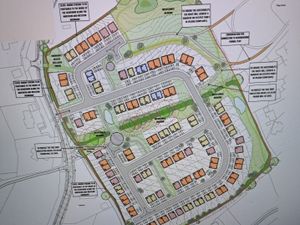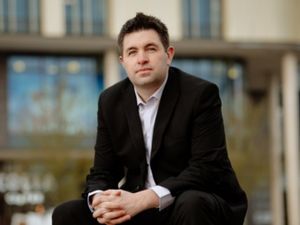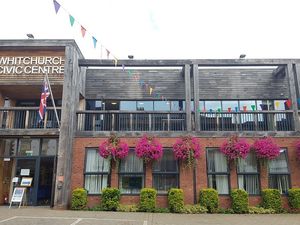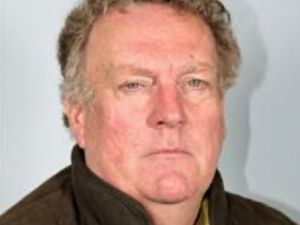Chilcot report: Counting the human cost of the Iraq War
The Iraq war has resulted in the death of 179 British service personnel, as well as hundreds more being wounded.
The impact of the war was keenly felt in Shropshire, Mid Wales and the wider region, with numerous members of the armed forces paying for the conflict with their lives.
Lance Corporal Paul Thomas from Buttington, near Welshpool, was killed in August 2004 while serving with the 2nd Battalion The Light Infantry in Basra.
His platoon commander Lieutenant Will Follett described Mr Thomas – known in his battalion as "Taff" – as the backbone of his platoon.
"Taff was a proud Welshman who had a passion for all sports," said Lieutenant Follett.
"He was a keen rugby supporter as well as following his local football club, Shrewsbury Town," he said.
"He was an immensely popular member of the platoon, widely regarded as its backbone, through his diligence, professionalism and unfaltering enthusiasm to the job and the soldiers under his command."
More: Mistakes of Iraq 'must never be repeated', say local MPs
In May 2006, Wing Commander John Coxen, who had served at RAF Shawbury, became the most senior British officer to be killed in Iraq when a helicopter he was travelling in crashed into a house in Basra.
The 46-year-old, who had commanded 1 Squadron at Number 2 Flying Training School at Shawbury in the 1990s, was one of five service personnel killed in the crash, which also claimed the life of Sarah-Hayne Mulvhill, 32, the first British servicewoman to be killed in action in Iraq.
W Cmdr Coxen's station commander Group Captain Duncan Welham said at the time: "John's reputation across the Support Helicopter Force and Royal Air Force was second to none.
"He was a unique individual, humble and courageous. The world will be sadder place without him. A truly devoted husband, John enjoyed family life to the full with his wife Agnes and will be sadly missed."
The same month two Shropshire-based riflemen were killed in a roadside bomb attack in southern Iraq which left another seriously injured.
Private Joseva Lewaicei, 25, and Pte Adam Morris, 19, were serving with the 2nd Battalion Royal Anglian Regiment, based at Clive Barracks, Tern Hill, near Market Drayton.
The soldiers were on a routine patrol as they travelled in a convoy of armoured Land Rover vehicles.
Another casualty of the war was private security worker Richard Sedgley, from Loppington, near Wem.
Mr Sedgley, a former Codsall schoolboy who had previously served with the Grenadier Guards, was travelling near DhiQar when a roadside bomb went off.
Roger Downward, who kept the Dickin Arms in Loppington, said Mr Sedgley had moved to the village with his fiancee about a year before his death.
"They were a very, very nice couple and used to come in the pub occasionally when he was home from Iraq," he said.
Trooper David Clarke, of Littleworth, near Stafford, was one of the early casualties of the war, being killed in a so-called "friendly fire" incident during the first week of fighting that also claimed the life of Corporal Stephen Allbutt of Stoke-on-Trent.
Serving with the Queen's Royal Lancers, Tpr Clarke was killed when his Challenger II tank came under fire from fellow British troops.
No inquest could be held on Trooper Clarke because his body was never found. His mother Beverley has been fighting to bring what would be landmark legal action against the Government ever since her son's death in 2003.
She said last year: "I am not doing this for money, I am doing this for closure. I feel I owe it to David to get to the bottom of this."
Her son was a keen sportsman who played for Stafford Rugby Club. He was looking forward to becoming engaged to long-standing girlfriend Rachel Furniss on his return to the UK.
Gunner David Lawrence, 25, from Walsall, was driving a Land Rover in convoy when it was hit by a rocket-propelled grenade. Another lightly armoured "snatch" Land Rover had been badly damaged, and as troops sought to extract the casualties, they came under small arms fire.
The Chilcot Report criticised the use of the "snatch" Rovers, saying the Government was too slow to adopt heavier vehicles which could have saved lives.
Gnr Lawrence had enlisted in June 2001 when he joined the Royal Artillery. After training at the Army Training Regiment in Pirbright and the Royal School of Artillery at Larkhill, he joined B Battery, 1st Regiment Royal Horse Artillery, based in Tidworth, operating the AS-90 armoured self-propelled gun.
Reg Keys, who previously worked as a paramedic in Solihull before retiring to Llanuwchllyn near Bala in North Wales, has been a leading campaigner for Tony Blair to go on trial for war crimes following the son of his 20-year-old son Tom, who was killed in an Iraqi police station in 2003 while serving with the Royal Military Police along with five of his colleagues.
He said his son had died in vain in an interview just before the publication of the report yesterday.
"My son did not die defending his country, he died serving his country, because his country was never under threat from Iraq," said Mr Keys.
"Tony Blair had misled Parliament, misled the general public but worst of all he misled those brave troops."





